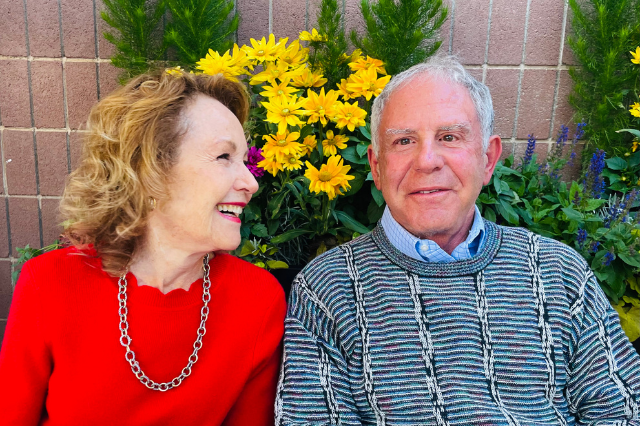Perspective and Perception is Everything!
Compassionate relationships are an art, and building healthy relationships can benefit from a conscious approach of respect and interpersonal communication skills with others. Would you like to benefit from better communication skills in your current relationships?
Today I’m diving into lessons I’ve learned through loss, as well as three relationship tips to communicate compassionately. Let’s get to it.
I was never taught how to effectively communicate either in my childhood home or in academic environments. Can you relate?
Let me share a story with you.
In my childhood, I don’t remember being encouraged to express feelings, whether it was focused on myself and life, or how I felt about family members or situations in the household. And in 1963, when I was 16 years old and my father passed away from his third heart attack in nine years, although I knew I was loved, I had no help processing my profoundly painful emotions.
Instead, I was left to deal with them, secretly burying overwhelming shock, sadness, grief, fear, anger and anguish.
Through the pain I perceived that my Dad purposely left me to fend for myself in the world and I was frightened and angry at him for doing so, even though I still lived with my mother and another family member. Emotional pain of abandonment negatively colored my perception of our relationship. All I could see was that he abandoned me, suddenly dying in the hospital, no chance to see him before he left and it wasn’t fair! My perception was grossly inaccurate.
In my emotional instability I wasn’t able to think that he might have fought hard to stay alive for me and our family. My only focus was the excruciating pain of his disappearance.
Lesson #1: When we’re in emotional pain, it’s difficult to see the truth of a situation or person.
Two decades later I realized I was still grieving deeply from the loss. I sought help from a psychotherapist who helped me learn to communicate my emotions in a meaningful way and recognize that my perceptions about my father and how he left me feeling unsafe in the world were completely erroneous. I learned how to forgive myself and forgive my father.
Lesson #2: Learn to forgive yourself for creating a story that causes painful thoughts and feelings, including anger created for reasons based upon perceptions that are not the truth.
As children, it’s not uncommon to develop a sense of Self by virtue of our environment, what we see and how we model ourselves after others…often adopting the labels, behaviors and perceptions from others.
Therefore as adults it’s important to realize that some of our current perspectives and perceptions may be carried from childhood into current day relationships. They influence our lives even though these early thoughts and beliefs developed at a time when we were unable to discern what’s true and what’s not. Is it possible that today’s anger, judgment, sadness, guilt and fear are triggered from earlier life experiences? The data says yes.
To communicate compassionately and authentically, it’s important to assess and understand where unwanted emotions are coming from.
How do you perceive yourself in this relationship…as a victim, a controller, passive aggressive, an interrogator or neutral observer?
Ask yourself, “is the other person truly the cause for my emotional charge, or am I being triggered from my past?”
Here are 3 steps to communicate compassionately avoiding false perceptions and perspectives:
1. Take a step back from your current emotions and look at what might be underlying the other person’s communication and actions. Imagine being a part of their world. What hurts and pains (often from the past) may cause them to act and react the way they do or did? Do they seem unable to do any better…or ignorant of the kind of communication customary for the situation? With a new understanding, then communicate more effectively using better listening skills and empathy. Some people are doing their best even when you think they should know better. Be kind, as we don’t know the difficulties another person may be experiencing each day.
2. Listen carefully to the other person to make sure he or she feels that you have heard their concerns. Gather information on what they are truly communicating before speaking. They will listen to you more openly when they feel you are hearing and acknowledging their viewpoint and unmet needs.
3. Identify your unmet underlying needs. Use what you’ve learned about their viewpoint to communicate your unmet needs. Conscious communication is not about fighting to win, rather it’s about building relationships to get your needs met. In a kind, compassionate way, express those needs in a way that informs the other person how and why you’re reacting to their communication and actions in the way that you are. Work to achieve mutual respect for each other’s needs and work together as a team to find acceptable solutions to problems.
NOTE: If you decide this person is a toxic influence in your life, consider letting go of this relationship in an appropriate way. Seek professional help, when needed.
In this recent post, I shared what worked best to create a successful, compassionate relationship and partnership with my husband for 50 years and counting. If you missed it, you can find it here.
My passion is helping others to live a better life. For 20 years as a personal life coach, I’ve helped countless clients learn, grow and change for the better by learning to positively control their mindset and shift toward self-empowerment and self-responsibility. Where our thoughts go, so does success, health and life!
If you’re ready to commit to making lasting change, set up a FREE discovery call with me.
I can’t wait to meet you.



